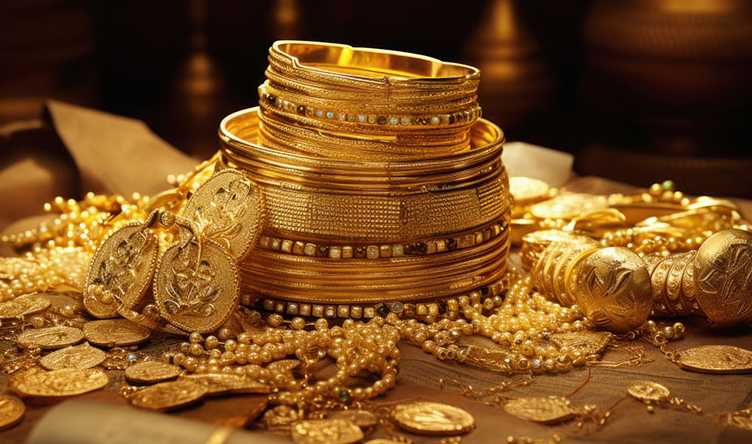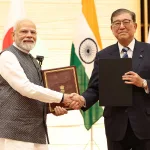A Tradition Turned Burden
In the picturesque Kashmir Valley, where traditions hold deep cultural significance, gold has long been a symbol of prosperity, social status, and familial pride. However, in recent times, this prized metal has transformed from an emblem of tradition to a formidable hurdle in matrimonial alliances. The excessive importance placed on gold in marriages—especially in the context of dowries and expectations—has led to financial strain, delayed unions, and even broken engagements.
Gold: A Status Symbol or a Social Pressure?
For generations, gold has been an integral part of Kashmiri weddings, signifying both wealth and stability. It is customary for the bride’s family to present gold ornaments as part of her dowry, which often determines her perceived value in the marital market. Unfortunately, this practice has shifted from being a cultural embellishment to an expectation, leading to undue financial pressure on families, particularly those from modest backgrounds.
Families of grooms, in many cases, measure the ‘worthiness’ of a bride’s family by the amount of gold they can provide. Conversely, the groom’s family is also judged based on the amount of gold they can offer, creating a competitive and materialistic approach to marriage negotiations. This commercialization of relationships undermines the very essence of marriage, which should be built on mutual understanding and companionship rather than material assets.
The Economic Strain on Both Families
The increasing cost of gold has exacerbated the financial burden on many households in the Kashmir Valley. The price of gold fluctuates globally, and its surging rates make it difficult for middle- and lower-income families to meet societal expectations. As a result, parents often resort to loans or selling off ancestral property to afford gold for their daughters’ weddings.
However, the financial burden is not one-sided. The groom’s family also suffers due to societal expectations. They are often required to reciprocate with expensive gifts, gold jewellery for the bride, and other lavish wedding expenditures. Many families, despite their limited resources, feel compelled to match or exceed what is offered by the bride’s side to avoid social embarrassment. This leads to economic hardship on both ends, making weddings more of a financial transaction than a celebration of union.
Beyond gold, additional expenses such as extravagant tent decorations, multi-course feasts, lavish gifts, and elaborate wedding venues have further escalated the cost of marriages. What was once a community-driven celebration has now become a display of financial status. The pressure to host grand weddings adds further stress to families, making it increasingly difficult for many to arrange marriages within their means.
Delayed Marriages and the Fear of Stigma
In a region where societal norms play a significant role, delayed marriages due to the inability to meet gold expectations are becoming increasingly common. Women who remain unmarried for an extended period face unwarranted scrutiny, often labelled as ‘too expensive to marry off.’
The delay in marriage not only impacts women emotionally and psychologically but also restricts their prospects in life. Many women, despite being well-educated and capable, find themselves at a disadvantage because their family cannot afford the gold dowry expected by potential suitors’ families.
Similarly, the groom’s family is not exempt from this pressure. In some cases, the groom is assessed based on the weight of gold his family can provide as gifts or bridal jewellery, adding further stress to marriage negotiations. Many young men face difficulties finding a match if their families are not able to meet the demands for lavish gifts and gold. This materialistic approach places an unfair burden on both sides, reducing marriage to a financial arrangement rather than a meaningful partnership.
Breaking the Chains of Tradition: A Path Forward
Despite the deeply ingrained gold-centric marriage customs, a quiet revolution is taking place in the Kashmir Valley. Some progressive families and social activists are advocating for a shift in marriage expectations, focusing on education, character, and compatibility rather than material wealth.
Several communities have begun to challenge these archaic norms, encouraging simple weddings with minimal financial burdens. Social media campaigns and local awareness drives are helping to reshape mind-sets, promoting marriages that prioritize mutual respect over material possessions.
Additionally, there is a growing movement toward simplifying wedding ceremonies. Many families are now opting for modest weddings with fewer guests, minimal decorations, and cost-effective catering. The emphasis is shifting from ostentation to meaningful, intimate celebrations that honour tradition without imposing financial ruin.
Conclusion: Redefining Marriage beyond Materialism
Marriage is a sacred union that should be based on love, trust, and companionship rather than financial exchanges. The undue emphasis on gold in Kashmiri weddings is not just a financial challenge but a social issue that affects countless families, leading to stress, delays, and even broken relationships.
While cultural traditions should be preserved, they must evolve to align with modern realities. Societal attitudes need to shift from materialistic demands to values that truly define a strong and lasting relationship. Only then can the sanctity of marriage be restored, making it accessible and meaningful for all, regardless of their financial standing.
(Author has done B.A.LLB, LLM (Criminal laws), Diploma in consumer laws, Diploma in cyber Laws and can be reached at: [email protected])








